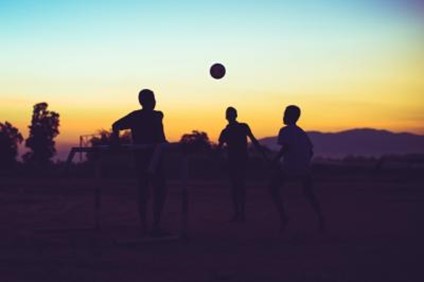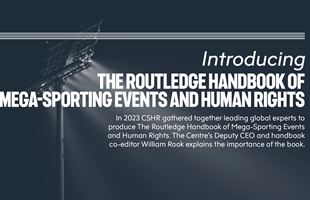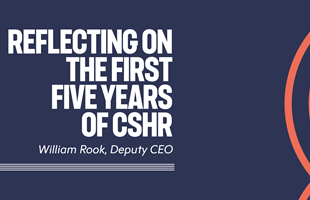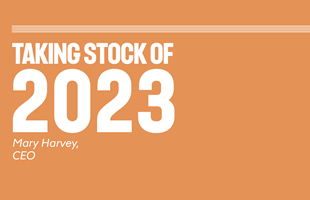NHRIs as a critical enabler for accountability in sport

Few relationships have the potential to be as constructive in advancing human rights in sport as that between National Human Rights Institutions (NHRIs) and national sports federations. For sport, NHRIs occupy a unique space – as the domestic guardians of human rights in their jurisdictions, NHRIs offer expertise and insights, grounded in the rule of law. A number of NHRIs have formed relationships with sports organisations to promote human rights in sport and to use sport to promote human rights. That said, there are many NHRIs for whom the relevance of sport to human rights is not seen as paramount, and many sports organisations that simply do not see the relevance of human rights to sport.
As NHRIs advance their work in this space, and as more sports federations find themselves required to adhere to human rights standards without having the expertise to do so, there are growing opportunities for new forms of cooperation and support. As part of this process, the Centre for Sport and Human Rights recently convened a workshop for NHRIs looking at what role they can play in increasing accountability in the sports sector.
For NHRIs, there are few thematic areas of commonality across jurisdictions – climate justice and labour rights are two noted examples. Yet sport brings millions of people together from around the world and highlights both those rights that need to be protected, as well as those that can be promoted. This has been recognised by the Commonwealth, which developed the ‘London Declaration on Sport and Human Rights’ in 2018, and committed Commonwealth NHRIs to work with governments and sporting organisations in the promotion of human rights, both in and through sport.
Many NHRIs from around the world have either worked in, or are currently working in this space. For example:
- In Northern Ireland, sports bodies approached the NHRI as they struggled with issues ranging from child safeguarding to anti-discrimination. The NHRI has convened several national sports federations to discuss solutions to these problems and foster discussions that otherwise would not have taken place.
- In Australia, the NHRI has worked with Sport Australia and the major sports federations, mega sporting events organisers, and organisations focused on safeguarding children in sport, to provide basic resources around human rights including guidance and information on how to respect and protect human rights. The Commission has also done deeper dives into specific issues such as transgender rights, women’s discrimination, and racism in sport.
- In New Zealand, the NHRI has led human rights and sport work for the Commonwealth Advisory Board on Sport (CABOS) particularly on guidance to Commonwealth States on the implications of human rights for sports policy, and on the proposed Commonwealth Sports Ministers Consensus Statement on Sport and Human Rights. The NHRI also participated in the formation of the Centre for Sport and Human Rights, worked with national sports federations and the State sports agency on human rights issues related to violence and abuse, and on child friendly remedy in sports disciplinary procedures.
- In Morocco, the NHRI’s work on sport came out of a requirement by world football’s governing body, FIFA, stating that a human rights risk assessment needed to be conducted for all countries looking to bid for World Cups starting in 2026. As one of the countries that bid for the 2026 World Cup, the Moroccan Football Federation solicited the support of the NHRI in developing this risk assessment.
- In India, the NHRI receives over one million complaints annually, many of which pertain to sport, such as interventions made around the 2010 Commonwealth Games in Delhi, protests against a local sports federation, and poor conditions at a sports school that had been built in Kerala. They also pushed for the Sports Authority of India (SAI) to establish sexual harassment committees across the country, which it has done.
- In South Korea, the NHRI is conducting its largest ever investigation and inquiry into human rights and sport. The inquiry covers 50 sports and includes children competing from primary schools upwards. It includes child and adult athletes competing for scholastic and corporate league teams in speed skating and judo, which have been marred by sexual abuse allegations.
- In Qatar, the NHRI emphasised to the Government of Qatar the need to pay more attention to the practice of sport and its empowerment among the various groups of society. The NHRI has worked on improving labour practices around the 2022 World Cup and supports the monitoring of labour abuses in the country.
- In Rwanda, the NHRI works with many national sports federations and uses sport to promote human rights. Sport has been used as a tool for reconciliation and social cohesion in Rwanda and has been used to promote peace and tolerance. The NHRI is also using sport as a tool to advance women’s rights including encouraging more women to get involved in sport and pushing for more women to adopt senior positions within sports federations.*
The Centre’s meeting with NHRIs focused on how they can enable greater national level accountability in sport as part of their independent mandates. Several areas where NHRIs can play an important role were highlighted, including:
- Facilitating discussion – NHRIs can convene national sports federations and provide a safe space for them to discuss common challenges and good practices relating to human rights. In the Northern Irish context, this has proved an important way to foster conversations that would not have happened otherwise, and assisted in identifying inconsistencies across different accountability mechanisms.
- Pushing for accountability in national policies – NHRIs can feed into State-based processes such as the development of National Action Plans on Business and Human Rights (NAPs). In India, the NHRI supported the development of this action plan and is now pushing for sport to be included. In Morocco, the process developed in the opposite direction whereby the human rights risk assessment for the 2026 bid recommended the development of a NAP in Morocco and discussions are now underway to develop such a plan.
- Exercising investigatory powers – Northern Ireland, Australia and India all cited the fact that while they do not have the power to get involved in criminal cases, many NHRIs do have investigatory powers, which few have exercised in the case of sport. Similarly, in Rwanda, public hearings can also be used for sport related cases.
- Working with sport-specific mechanisms – Few NHRIs have had the opportunity to engage directly with a mega-sporting event, but where they have, examples of good practice should be noted. In Australia for example, the NHRI worked with the Commonwealth Games Organising Committee in Gold Coast on both their human rights policy and a Reconciliation Action Plan. While the NHRI was stopped short of acting as a sport related grievance mechanism, it was able to play a facilitation role on issues such as access to venues and discrimination.
As with all sectors and jurisdictions, accountability inevitably comes down to monitoring and enforcement, including whether governments and NHRIs allocates sufficient resources to support these processes. Even in jurisdictions where relevant mechanisms exist, if they are not appropriately enforced, they will not serve their intended purpose. NHRIs are nevertheless a natural partner for sport – at a minimum they can provide essential advice and expertise, and at their best, they can be an important ally in helping to ensure sport operates in a way that does no harm.
*The Centre is seeking to better the experiences of NHRIs in the area of sport, particularly in relation to remedy and accountability. If you are an NHRI and would like to contribute, please send us your comments here.



